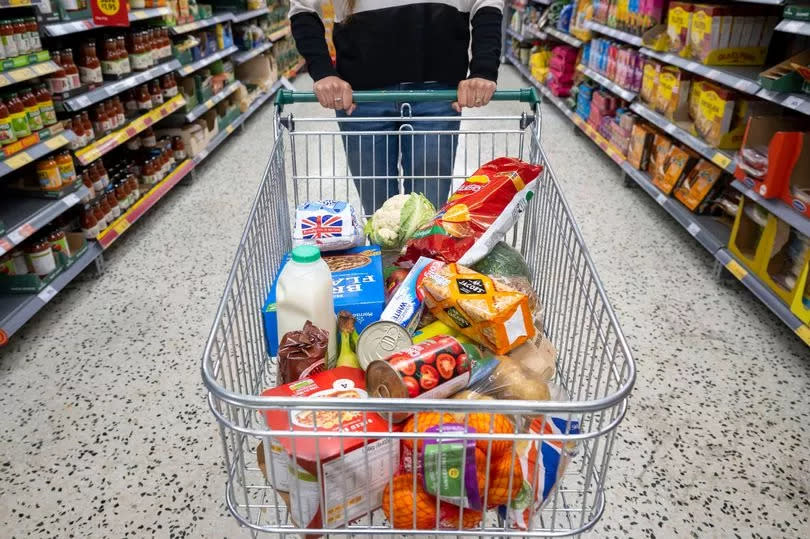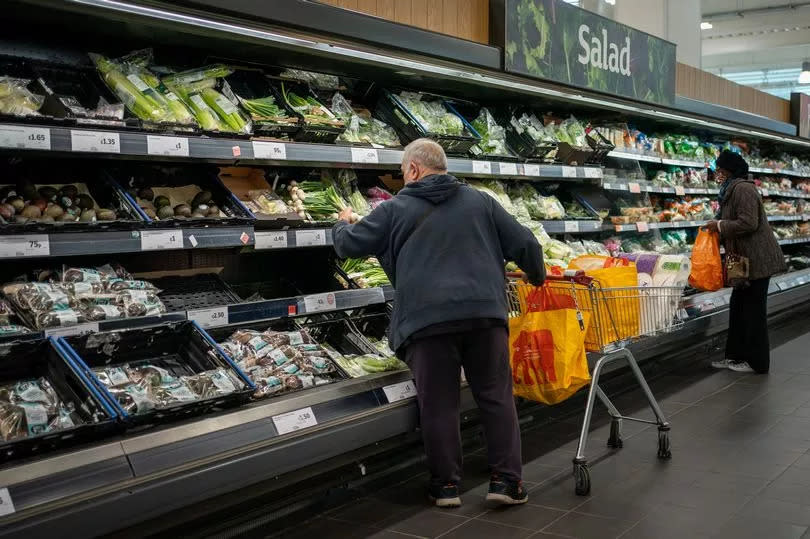Supermarket food labels 'misleading' and 'meaningless' for shoppers, investigation finds

An investigation has uncovered 'misleading' origin labelling on supermarket food, potentially leaving customers in the dark about where their groceries are sourced.
Researchers at the consumer group Which? discovered that items such as loose cauliflowers, red cabbage, courgettes, and onions at Sainsbury's; peppers, melons, and mangoes at Asda; and spring onions at Aldi lacked clear country-of-origin information on both the shelf and the products.
The investigation also highlighted 'fairly meaningless' labels, such as Lidl's sausage rolls marked as containing "UK and non-UK pork", and Iceland's gammon joints labelled as "EU and non-EU origin".
At an Aldi store, Which? noted tomatoes from Morocco, parsley from Italy, and sweet mini peppers from Spain displayed beneath a banner emblazoned with a Union Jack and the slogan "Championing Great British Quality". In an Asda, Which? spotted cauliflowers with a Union Jack on the shelf label that were actually imported from Spain.
Aldi's Crestwood bacon and cheese wraps sported Union Jacks and "Made in Britain" on the front, despite the back label stating the pork originated from the EU a discrepancy also found with an Aldi steak and gravy pie.
A survey conducted alongside the study revealed that only 51% of over 2,000 UK consumers found the current origin information on groceries to be useful. A staggering two thirds (64%) of consumers have indicated they're more inclined to purchase products branded as "British" over those that aren't.
The sentiment for transparency in food sourcing is strong, with almost three quarters (72%) stating the importance of knowing the origins of fresh meat, and over half (51%) expressing a desire to trace the roots of processed and tinned meats. Similarly, 68% of shoppers deem it crucial to be aware of where their fresh fruit and vegetables are sourced from.
Under current regulations, certain products such as meat, fish, fresh fruits and veggies, honey, and wine must disclose their country or place of origin. However, these stipulations generally do not extend to processed meats or frozen and canned fruits and vegetables, unless omitting such information would lead to consumer deception.

The survey also shed light on the motivations behind shoppers who scrutinise origin labels: 59% do so to bolster the local economy, 58% to gauge the quality of the product, and 52% to understand the environmental footprint of their purchases.
Consumer champion Which? has called for enhancements in origin labelling to truly empower consumers to make choices that resonate with their values.
Which? plans to present its findings to the Department for Environment, Food and Rural Affairs, contributing to the ongoing consultation on fairer food labelling initiated on March 15.
Which? Retail editor Ele Clark remarked: "Which? research has uncovered a surprising amount of inconsistent and misleading food labelling, suggesting that even when the rules are properly adhered to consumers aren't getting all the information they want about their food's origin. Shoppers want to know where their food comes from for multiple reasons, including supporting British suppliers and making more sustainable choices."
She noted: "Supermarkets should particularly focus on labelling loose fruit and vegetables more clearly, but manufacturers and retailers should also consider providing origin information on more processed meat products so shoppers are armed with the information they need to make informed choices."
An Aldi spokesperson commented: "We understand that our shoppers want to know where the food they buy comes from, and we work hard to ensure that all our labelling complies with the rules."
"When it comes to fresh fruit and veg, we are proud to support British farmers and aim to stock British produce whenever it's available. Customers understand that at this time of year that isn't always possible, but we remain firmly committed to supporting the British farming community."
Asda stated: "We have stringent processes in place to ensure country-of-origin is clearly displayed at the shelf edge and on products themselves where applicable, at all our stores."
"We have reminded our colleagues at this particular store of these processes so that customers are able to clearly see the country of origin."
A spokesman for Iceland said: "At Iceland our products are great quality and value for customers and we follow UK government guidance on food labelling, including country-of-origin."
A Sainsbury's spokeswoman said: "We have processes in place to make sure country-of-origin information is clearly displayed on the product or shelf and we carry out regular checks working closely with our regulator, the Animal and Plant Health Agency."
Deltapoll surveyed 2,011 UK adults online in February.
Don't miss the latest news from around Scotland and beyond. Sign up to our daily newsletter.

 Yahoo News
Yahoo News 
